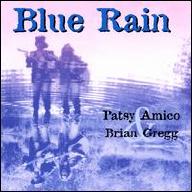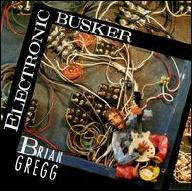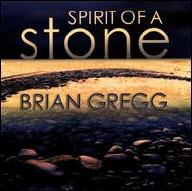His own shot at a music career followed in short order, however. While working at the record store, he chanced to meet two members of the skiffle band Les Hobeaux, who were in the market for songs to add to their repertory. Gregg advised them about some recent American arrivals, and they later returned to thank him; he learned of their band affiliation and was invited to see Les Hobeaux perform. And by sheer luck, on the night that he came to see them at the 2i's, their own bassist failed to appear and he stepped into the breach. Gregg became a permanent member of Les Hobeaux, and their work was so widely known in the area that he was soon something of a star on the bass, at least within the musicians' community. Bassists were, on the whole, a rare commodity in rock & roll in those days, mostly because of the oddness of the instrument. Those would-be string players with big talent or big egos, or little imagination, naturally gravitated toward the guitar. And drums attracted people who liked to pound on things and make noise, while the piano and organ had their own appeal to those with interests in jazz, classical, boogie-woogie, or church music. But the bass was such an unusual instrument that very few people aspired to play it, and even fewer to own one -- the uprights were huge and bulky, and the electric instruments, which were totally new to England in 1957 (and weren't fully accepted), were enormously expensive.
Gregg, playing an upright double bass in those days, became one of the more in-demand musicians of the time, and he soon had an offer to join Colin Hicks (the brother of Tommy Steele) as part of his backing band, the Cabin Boys, which got him a trip to Italy on tour. And from there it was on to working with Tommy Steele -- then still one of Decca Records' top-selling proto-rock & rollers -- and, finally, back to playing in the band behind his old friend Terry Dene. And that led Gregg to his first team-up with Clem Cattini, with whom he would work professionally numerous times in the coming decades. The two became close friends and also got to make their joint big-screen debut in the Dene-starring feature #The Golden Disc. In between gigs with Dene, Gregg also managed to work with a hot Soho-based skiffle outfit called the Vipers, who were soon to be signed to EMI's Parlophone label by George Martin, and he and Cattini later became part of the Beat Boys, a house band put together by manager Larry Parnes to back the singing talent he was pushing to stardom, of whom the most notable was Billy Fury, then at the outset of his career. That gig only lasted a couple of months, however, and in late 1959 both Gregg and Cattini were gone from the Beat Boys (who were later renamed the Blue Flames). They jumped instead into the lineup of a hot new band that had been signed the previous year to EMI's HMV imprint -- Johnny Kidd the Pirates.
Johnny Kidd (born Frederick Heath) had been slaying audiences with his highly intense R&B stylings, and making some serious noise on the charts through some rather less distinctive records, but he was in the market for a new backing band at the time. With Gregg and Cattini coming into the lineup, the Pirates reached what was arguably their peak as a studio outfit (although some would make the case that a subsequent lineup, with Mick Green on lead guitar, was better on-stage), and across the next two years they cut an enviable swath across the British charts, spearheaded by the classic single Shakin' All Over. Gregg, Cattini, and guitarist Alan Caddy all quit at once in 1962, however, and made the jump to Colin Hicks' Cabin Boys -- but after six weeks in Italy, they quit and returned to England. While Caddy and Cattini went off to join the newly organized instrumental group the Tornados, Gregg became a member of the Rhet Stoller Band, and then played behind British teen idol rocker Eden Kane. But in early 1963 he was asked into the Tornados when their original bassist, Heinz Burt, was pulled out of the lineup by producer Joe Meek, who wanted to establish him as a solo performer. Gregg lasted in the Tornados for barely six months, though he did get to play on a lot of their records during that period, including the group's first album.
Gregg moved on to join the Pack, a band that was recording under the aegis of producer Mickie Most. His subsequent engagements included a stint playing bass behind Wee Willie Harris, the 1950s-era rock & roll singer, who was still a good concert attraction in parts of Europe and the Middle East. But after an extended tour of the latter region, Gregg decided to retire as a working musician and moved into the business end of the music industry, which was where he stayed for the next 20 years, until 1986, when he joined Cattini and Caddy in a reunion of the Pirates for a 20th anniversary tribute concert to Johnny Kidd. During the 1990s, Gregg turned up playing in various rock & roll revival events in England, and reunited once with his old bandmates from the Terry Dene days. And in the 21st century, he was once again playing regularly with Cattini and Johnny Kidd session guitarist Joe Moretti, in a kind of unofficial Pirates outfit. ~ Bruce Eder, Rovi
|
1
|
|
Roll On |
|
2
|
|
Fifth Wind |
|
3
|
|
Be You |



















